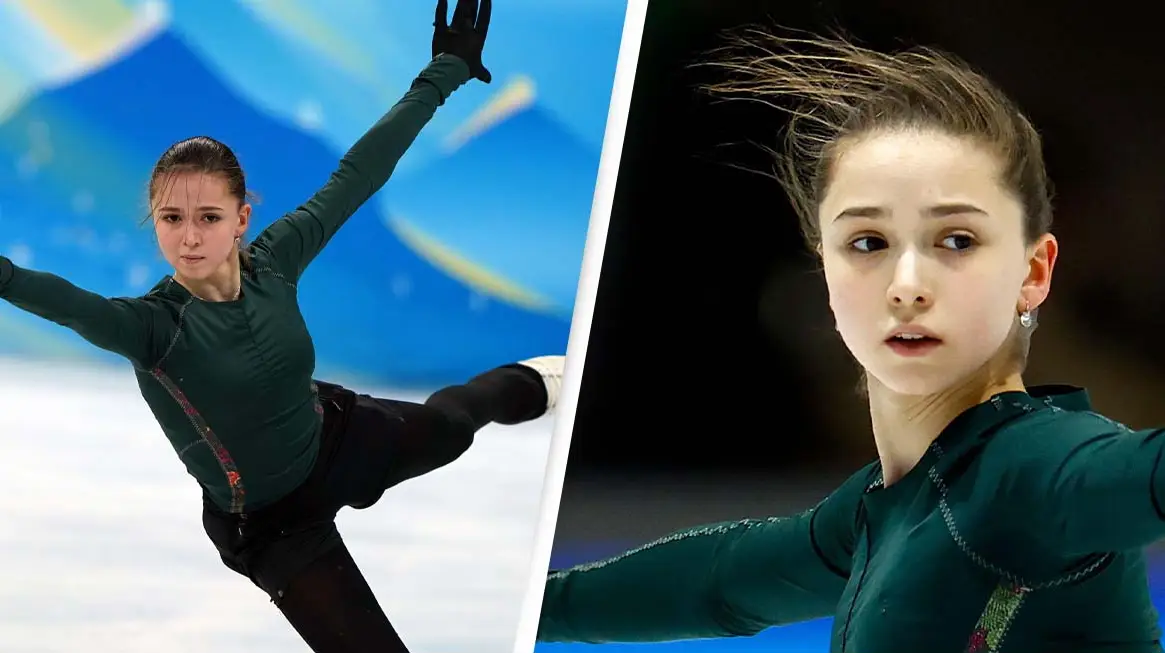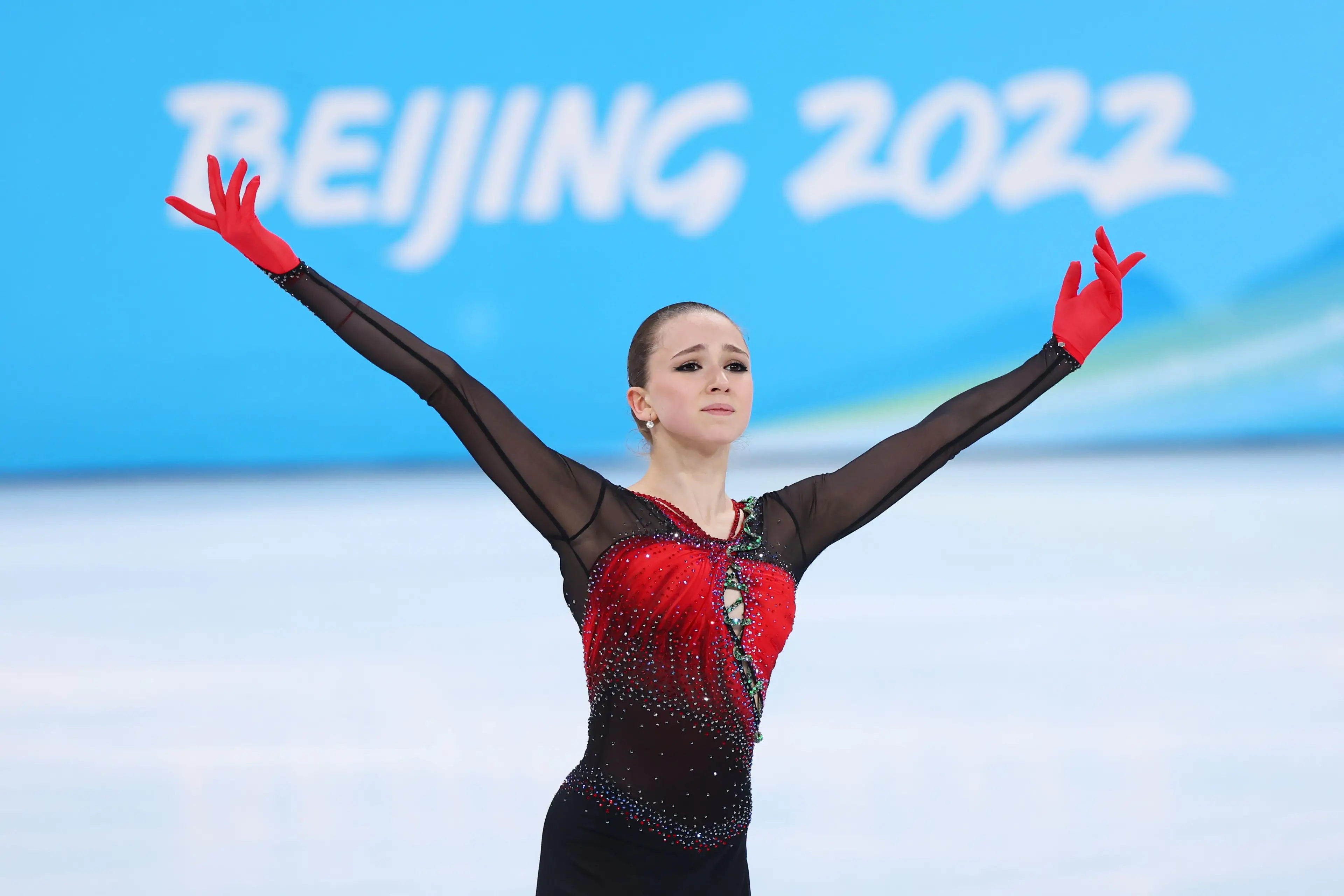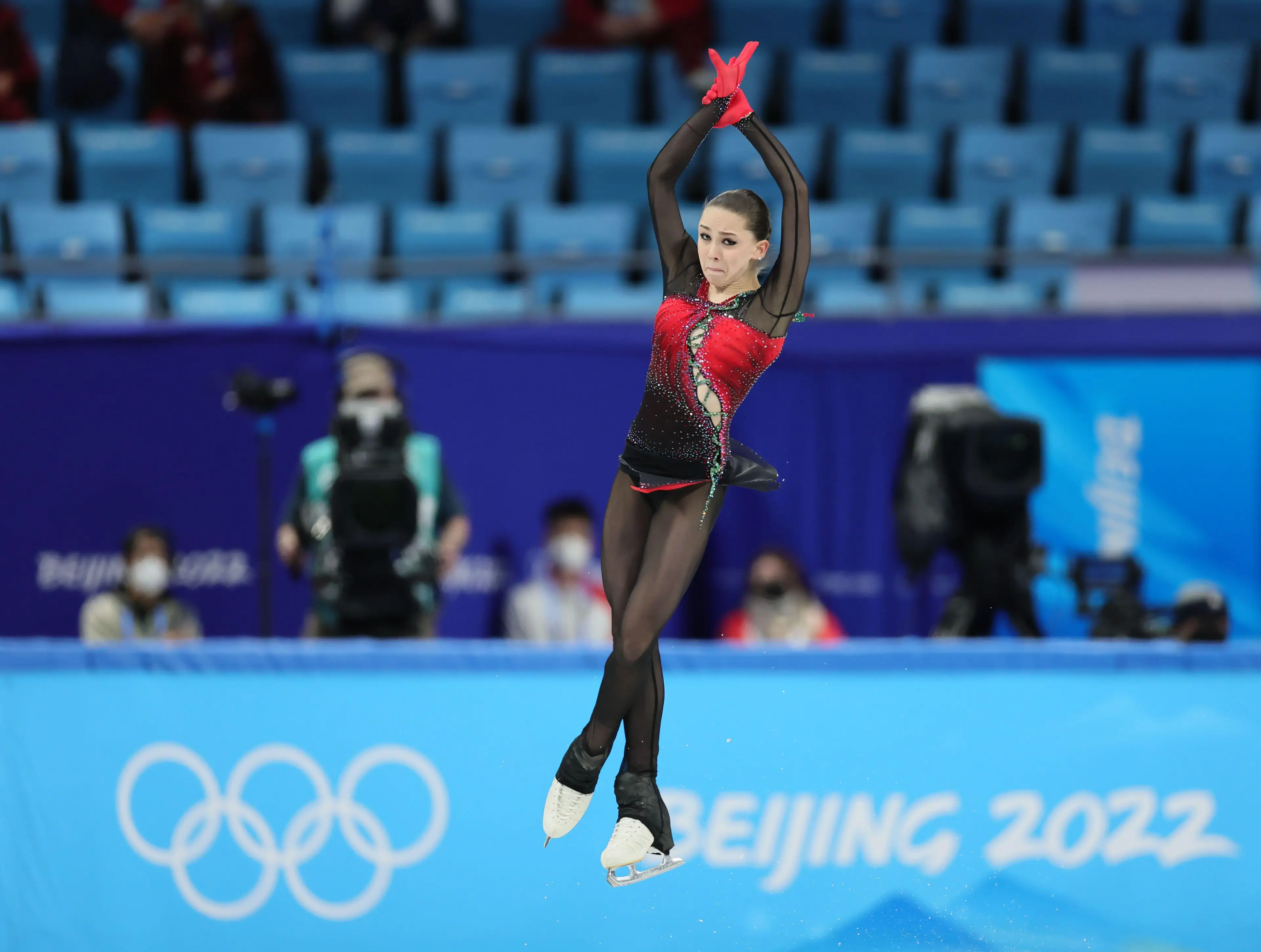
Olympic figure skater Kamila Valieva has claimed the reason she tested positive on a drug test taken in December is due to a mix-up with her grandfather's heart medication.
The results of Valieva's drug test were revealed earlier this month, after she had already helped Russia win gold in a team figure skating event, and showed she had tested positive for trimetazidine – medication that increases blood flow to the heart.
On Monday, February 14, the Court of Arbitration for Sport (CAS) announced Valieva would be allowed to continue competing at the Beijing Olympics, citing 'issues of untimely notification' of the drug test results and saying the 15-year-old Russian skater was a 'protected person' under World Anti-Doping Agency (WADA) rules.

Advert
Today, February 15, an Olympic official revealed Valieva had claimed the result was caused by a mix-up with her grandfather's heart medication while speaking at a Court of Arbitration for Sport (CAS) hearing into whether she should be allowed to continue competing.
According to Reuters, Denis Oswald, the International Olympic Committee's (IOC) permanent chair of the disciplinary commission, commented: 'Her argument was this contamination happened with a product her grandfather was taking.'
Oswald had previously revealed that a second sample of Valieva's urine, known as the B sample, has not yet been analysed, despite the initial positive result.
Anti-doping rules mean that a testing lab must inform the authority responsible for the sample if it comes back positive. Athletes can waive their right to have a B sample tested, but in doing so they concede the drug charge against them.
If they choose to have the B sample tested, the disciplinary procedure against the athlete cannot start until both samples have been tested.

In Valieva's case, the authority responsible for the sample is the Russian Anti-Doping Agency (RUSADA). It has not yet explained why the B sample has not been tested, and the World Anti-Doping Agency has questioned RUSADA over why the results of Valieva's initial drug test took so long to come back.
The 15-year-old is set to compete in the women's single figure skating event, which begins with a short programme today and ends with the free skate on Thursday.
If she finishes in the top three, the medal ceremony will not be held during the Winter Games. A medal ceremony for the team event, in which the Russian team won gold, has also been delayed due to Valieva's positive test result.
Oswald stressed that the IOC wants to ensure the medals go to the right people.
If you have a story you want to tell, send it to UNILAD via [email protected]
Topics: Olympics, Russia, World News, Sport